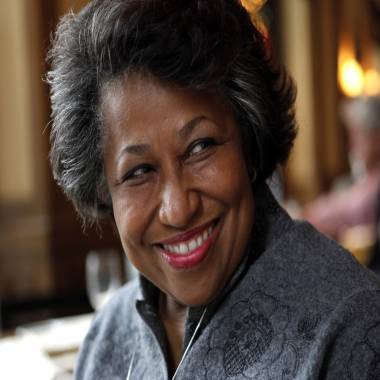Senate remains a glass ceiling for African-American politicians in years since 1963 march
NBC News - Gaining representation in the U.S. Senate remains a glass ceiling for African-American politicians, despite significant strides in winning seats in the House of Representatives during the 50 years since the March on Washington...

NBC News – Gaining representation in the U.S. Senate remains a glass ceiling for African-American politicians, despite significant strides in winning seats in the House of Representatives during the 50 years since the March on Washington.
It’s a fact often overlooked after Barack Obama, the most recent and only the third popularly elected African-American senator in history, capped off a rapid ascent from state legislator to commander-in-chief in just four years.
“It’s extraordinary when you look at it in the context that Obama was able to leap from a state senator to being a U.S. Senator to the presidency, because that’s been far from what other African-American politicians have accomplished,” said Frederick Harris, director of the African American Politics and Society Workshop at Columbia University.
“With the passage of the Voting Rights Act, we added significant numbers of African-Americans into the Congress, more adequately representing our numbers in terms of population in the country, but not fully representing those numbers,” said Maryland Democratic Rep. Donna Edwards. “I still think we’ve made a lot of progress, but we’ve got some work to do.
How have things changed for African-American politicians in the past 50 years?

- In 1963, there were just five black members of Congress, according to the House historian. Currently there are 41 voting members in the House of Representatives.
- In 1963, there were no sitting African-American senators in Congress — and there wouldn’t be until three years later, when Republican Edward Brooke of Massachusetts became the first African-American popularly elected to the Senate.
- Half of the states have never elected an African-American member of Congress. Only 25 have ever sent a black representative to the House.
- Only three states have ever elected black senators — Mississippi (during Reconstruction), Illinois and Massachusetts — but South Carolina and New Jersey could soon join that list.
- After Brooke, there have been only two other popularly elected black senators — Carol Moseley Braun and now-President Obama, both Democrats from Illinois.
- Briefly this year, there were two sitting African-American senators for the first time in history, with Republican Tim Scott of South Carolina and Democrat Mo Cowan of Massachusetts. Scott was appointed to the Senate to fill the seat vacated by Jim DeMint’s resignation, and will run for — and is favored to win — a full term in 2014, which would make him the first African-American to popularly win a Senate seat in the South. Cowan temporarily filled John Kerry’s vacated seat before Democrat Ed Markey was elected in a June special election.
After October there’s a good chance those numbers could grow if Democrat Cory Booker wins the New Jersey special election. Then, Booker would be only the fourth popularly elected African-American senator. If both Booker and Scott win re-election in 2014, it would be the first time in history the Senate had two popularly elected African-American members.
Click here to read more.
